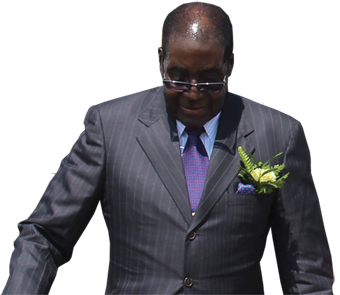
PRESIDENTIAL spokesperson George Charamba yesterday chose to be coy on when President Robert Mugabe was likely to release the Chihambakwe Commission of Enquiry Report on Gukurahundi, which is likely to give clarity on the post-independence genocide.
BATANAI MUTASA OWN CORRESPONDENT
Vice-President Phelekezela Mphoko brought the limelight back on the 1980s genocide when he recently claimed it was a Western conspiracy and was not connected to Mugabe.
Mphoko’s comments have earned him retribution and reignited calls that Mugabe should release the 31-year-old Chihambakwe Commission Report, which Charamba refused to discuss.
“Sorry, I am unavailable for that issue,” Charamba said yesterday.
“Let’s move on. I have nothing to say on that issue, unless there is something else.”
Ironically, Nathaniel Manheru — a Herald columnist believed to be Charamba — brought the focus on the Gukurahundi when he claimed the genocide was a myth and political parties from Matabeleland were using the episode to gain political mileage.
In 1983, Mugabe set up a commission of enquiry into the Matabeleland disturbances, also known as the Chihambakwe Commission of Enquiry, which ran from September 1983 for approximately 12 months.
- Chamisa under fire over US$120K donation
- Mavhunga puts DeMbare into Chibuku quarterfinals
- Pension funds bet on Cabora Bassa oilfields
- Councils defy govt fire tender directive
Keep Reading

The Chihambakwe Commission of Enquiry was to investigate the killing of 1 500 people in the Matabeleland region and to gather testimony from villagers about what occurred, and by 1987 when the Unity Accord was signed, an estimated 18 500 more people had died.
The commission was reportedly set up to investigate the genocide and to assuage widespread international and domestic criticism of the killings.
However, 32 years later, the government is yet to release the report, with authorities saying they feared its publication could spark violence over past wrongs.
According to the Catholic Commission for Peace and Justice, the genocide left about 20 000 people dead.
MDC-T recently said the release of the Chihambakwe investigation report on the Gukurahundi genocide was necessary for affected people to find closure.
“There has been no closure to the highly emotive issue pertaining to the Gukurahundi genocide,” MDC-T spokesperson Obert Gutu, said.
For his troubles, opposition parties and civic organisations have called for Mphoko’s resignation and threatened protests against him over what they perceive to be Gukurahundi denialism.
Mphoko, who heads the National Healing and Reconciliation portfolio, claimed that he would start debate on the genocide by unpacking the myths and propaganda associated with it.










